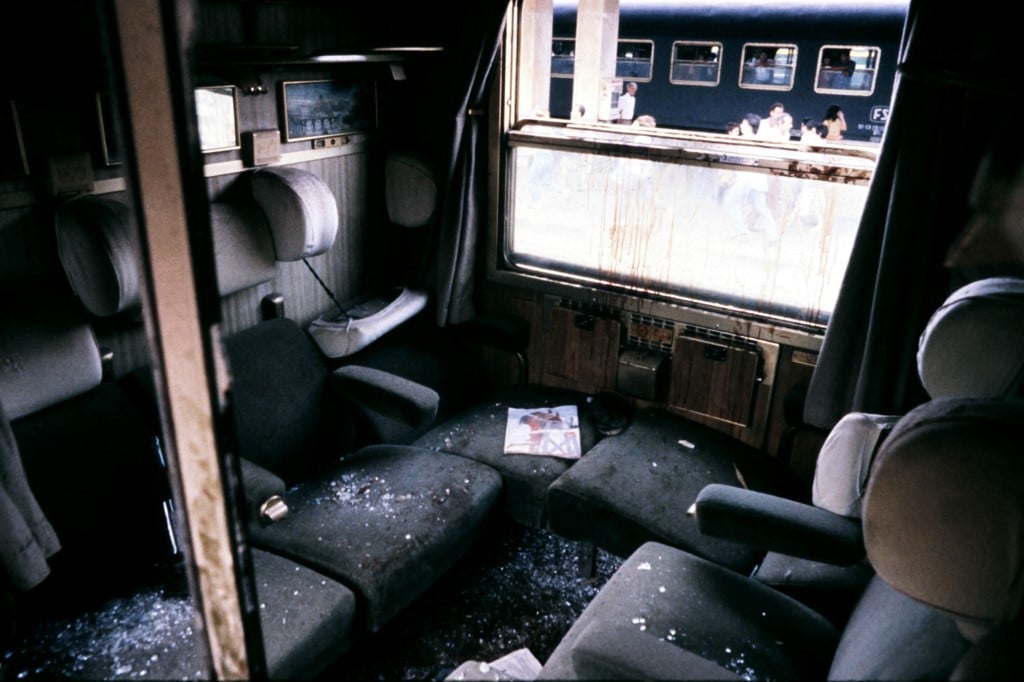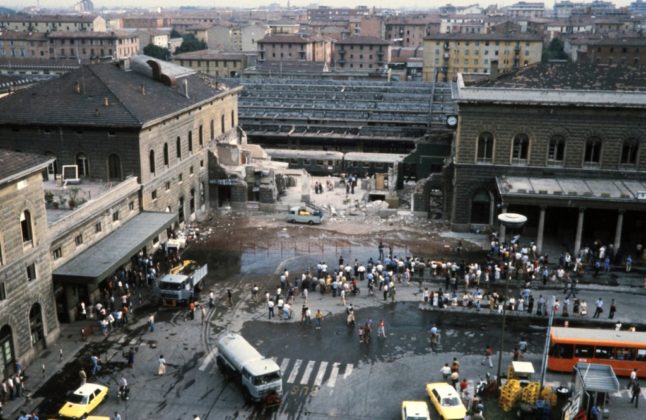The bomb that exploded in Bologna train station’s waiting room on August 2nd 1980 caused unprecedented devastation, and is remembered as the worst episode in Italy’s ‘Years of Lead’ period of political violence in the 1970s and 80s.
Five members of far-right terrorist groups were later convicted in relation to the atrocity, while investigations have also uncovered alleged links to Italy’s secret services.
In 2020, a former member of the far-right Armed Revolutionary Nucleus (NAR) was sentenced to life imprisonment for providing logistical support to those who carried out the attack.
But suspicions remain of cover-ups and the involvement of secret service agents.
READ ALSO: Italy’s president calls for ‘full truth’ on anniversary of Bologna bombing
Premier Giorgia Meloni told reporters on Wednesday her government wanted to “get to the truth about the massacres that scarred Italy in the post-war period,” as the lower house of parliament passed a motion in favour of declassifying the documents by 170 votes to 117.
Italy’s President Sergio Mattarella said in a statement on Wednesday: “The search for the complete truth is a duty that will not go away, no matter how much time has passed.
“The credibility of democratic institutions is at stake.”

“The neofascist nature of the massacre has been established in court, as well as cover-ups and shameful misdirections engaged in by secret associations and disloyal agents of State apparatuses.
“Together with Bologna and Emilia Romagna, the entire Republic feels the responsibility to always defend and strengthen the constitutional principles of freedom and democracy that have made Italy a great country.”
Senate President Ignazio La Russa, in a speech commemorating the massacre on Wednesday morning, said Italians should “dutifully remember” the “definitive court findings that attributed responsibility for this massacre to neofascism.”
But Meloni – whose far-right Brothers of Italy party grew out of the neofascist Italian Social Movement – has been accused of glossing over the issue, instead attributing responsibility to unspecified “terrorists”.
“Giorgia Meloni has repeatedly questioned the facts established by the judiciary,” Gianfranco Pagliarulo, president of the anti-fascist association ANPI, told journalists.
“Today she’s prime minister. Her ambiguity is no longer tolerable.”



 Please whitelist us to continue reading.
Please whitelist us to continue reading.
Member comments